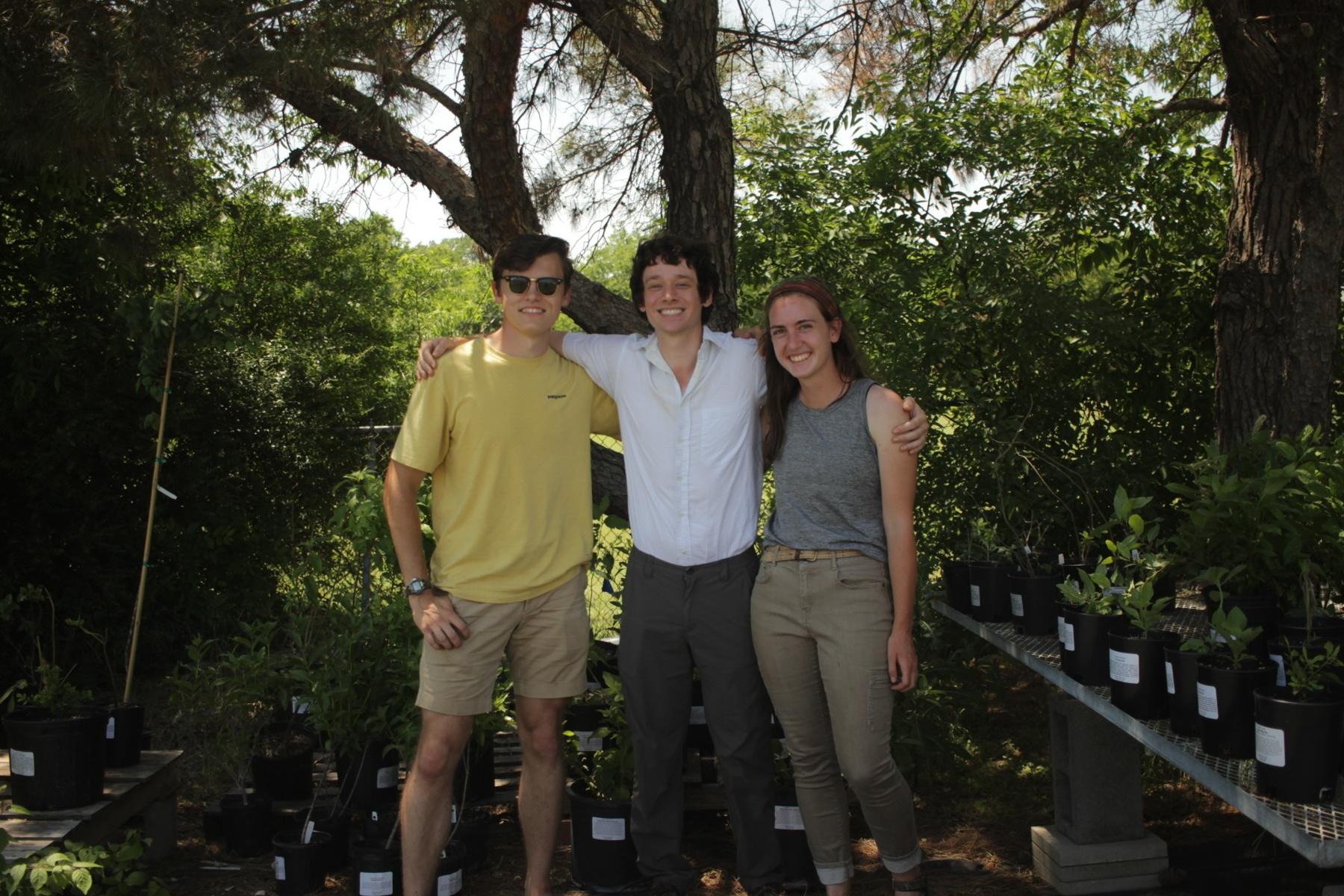
As they work on one their larger projects -- an 800-acre expanse of land where they're busy creating kestrel boxes and insect homes -- Molly Burke ('19), Taylor Phillips ('19) and Jesse Stanford ('19) often listen to the property owner reminisce about the native species he remembers glimpsing as a kid growing up in Texas. Many years ago, he told them, he saw so many Monarch butterflies, they practically blotted out the sun.
"Meanwhile, we haven't seen a single Monarch butterfly this spring," Stanford says.
That's because drought, pesticides and loss of habitat have led to an enormous decline in insect populations over the past few decades, with the Monarch population in particular dropping by an estimated 90%. It's startling statistics like those that motivated Burke, Phillips and Stanford -- all UNT ecology graduates -- to open Denton-based Wildscapers Restoration Company in January, which focuses on restoring the habitats of flora and fauna native to Texas.
"There's really nobody else in the area that's doing what we're doing," Burke says. "We're attempting to create spaces that will help preserve the Texas landscape in preparation of future climate change. Trying to shelter as much of the environment as we can right now is really important."
The trio first gained hands-on experience in conservation as students at UNT, where they all helped shape the Pollinative Prairie, a native north central Texas tallgrass prairie reconstruction project located on four acres of the east field at UNT's Discovery Park campus. They spent trial-and-error-filled months killing off invasive Bermuda grass before stamping seeds into the soil -- ultimately transforming the area into a vibrant prairie with native flowers, grasses and pollinating insects.
"That fieldwork expertise gave us the opportunity to hone different skillsets," Burke says.
Now, as part of Wildscapers, they've worked on several landscapes locally, from small-scale garden design to large-scale restoration projects. And they're committed to helping everyone reach one very important goal.
"We have to work together to change how we're living and treating the environment," Stanford says, "to keep the Earth sustainable for all species."